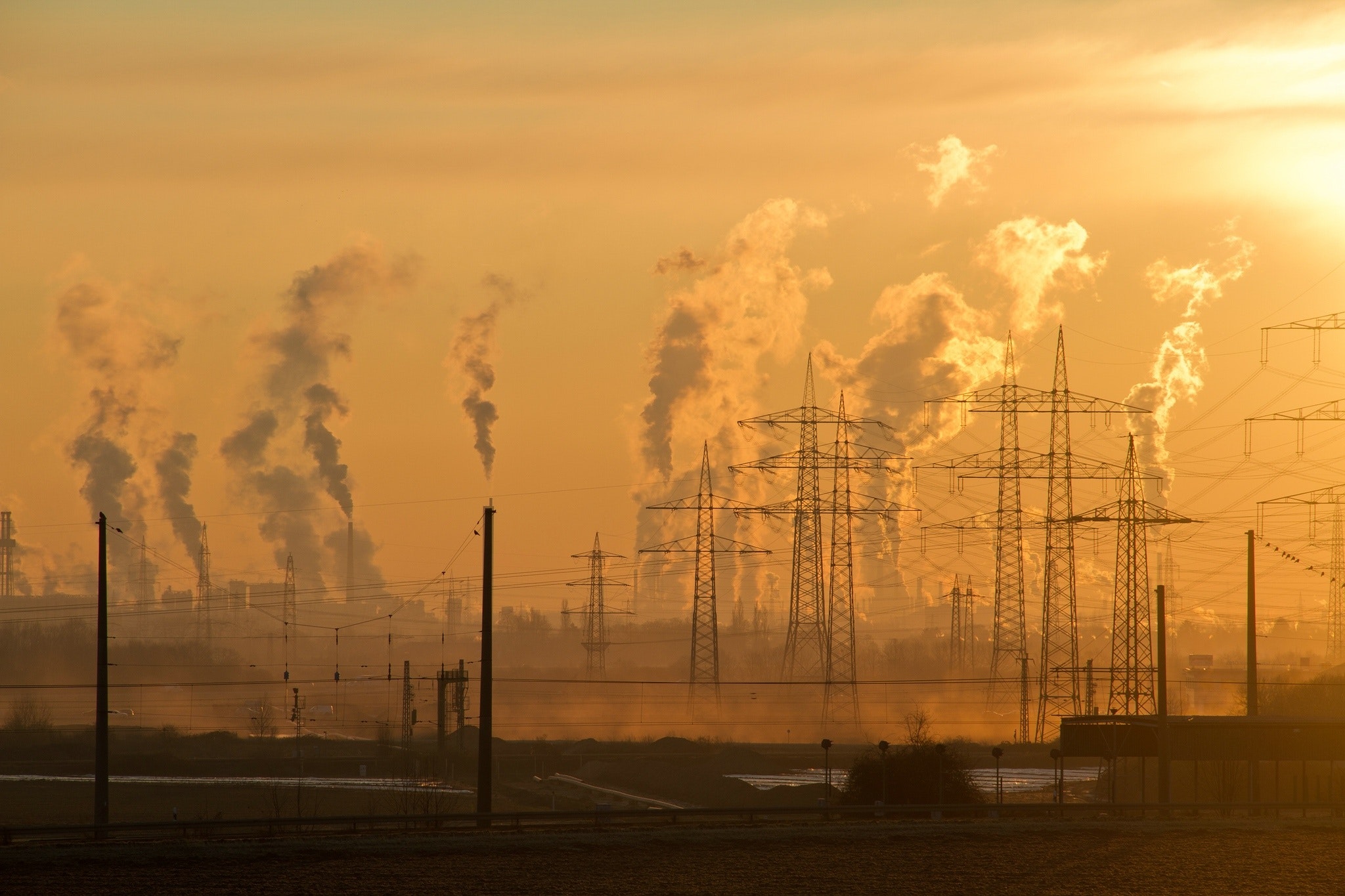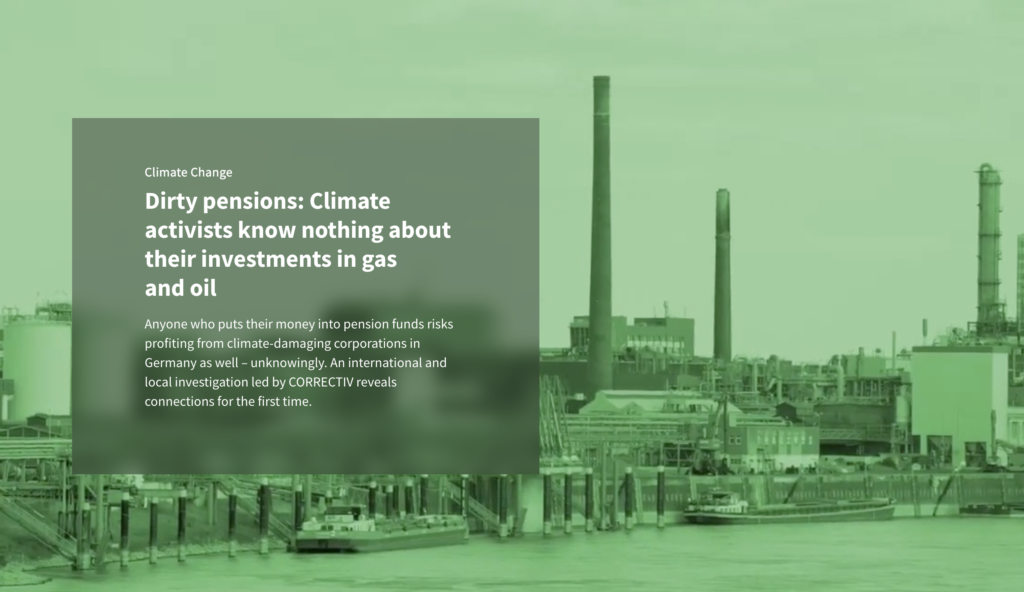
The opacity of the private investment industry creates an accountability barrier that hampers efforts to green pensions
Look through the published investments of most pension funds these days and you’ll quickly run into recognisable brand names such as GlaxoSmithKline and Heineken. Most curious pension holders will generally be able to find a wealth of information online about what these well-known, publicly listed companies do – and increasingly, what their carbon footprints are.
However, scrolling down the same pension fund reports, you’ll often find millions invested in a long list of uninformative, enigmatic legal entities followed by Roman numerals, like “Growth Capital Partners III” or “Warburg Pincus Private Equity XII”. They’re generally clustered under the headings “private equity” or “infrastructure funds”, with little more information to go on. Almost by design, it is extremely difficult to figure out what these funds are investing in, and in particular their impact on the environment.
In our latest investigation, we’ve started to peel back the curtain on what these massive investments are going towards. Digging into data from Pitchbook, we found dozens of pension funds from Europe and North America that hold stakes through private equity funds in oil and gas power plants in Germany alone.
The German public-interest investigative newsroom CORRECTIV and The Bureau of Investigative Journalism in the UK then tracked down pension holders in the UK and Canada who are unwittingly benefitting from these polluting assets.
“I’m really really angry about it… I feel dirty that I’m living off that kind of money,” Alix Otten, a pensioner from Manchester, UK, told reporters.
Ottin gets part of her pension from the Greater Manchester Pension Fund, which bought into a fund run by Macquarie, a global financial services group. Macquarie, in turn, owns Currenta, a German chemicals firm that operates a large industrial park in Leverkusen, which supports production by the likes of Bayer and Evonik.
In 2021, an explosion at the park killed seven workers and injured dozens. Nearby residents interviewed by CORRECTIV were forced to shelter indoors as toxic smoke and soot surrounded their homes. Currenta also operates the fossil fuel-burning power plants that generate electricity for the facility.
Our data, sourced from both public and proprietary sources, suggests that as well as Manchester, council pension funds from Edinburgh, Derbyshire, Hampshire, Merseyside and the Scottish Borders invested in Macquarie European Infrastructure Fund VI (MEIF VI), which bought Currenta in 2019.
In 2021, freedom of information requests by environmental campaigners revealed that UK local government pension funds were investing around £10bn in fossil fuels globally, despite three quarters declaring a climate emergency. The UK pension industry overall has £88 billion invested in oil and gas, according to a new report by Make Money Matter. Both figures almost certainly under report investments made via private investment funds, due to the opacity of the industry. Pension funds and the local authorities that manage them are often unaware of the deals private investment funds make using their cash.
Campaigns to divest UK local government pension funds from all fossil fuel assets are gathering pace, thanks in no small part to the work of organizations like Friends of the Earth, Platform and Make My Money Matter. Some authorities have responded to this pressure. For example, in 2022, Edinburgh City Council voted to divest the Lothian pension fund.
But another investigation by ACDC, published by The Ferret and the Sunday National, uncovered that Lothian is also one of seven UK council pension funds that piled into Macquarie European Infrastructure Fund V (MEIF V) back in 2016, investing at least $80 million between them. Until now, this private equity fund has been able to slip under the radar of activists trying to clean up the pension fund’s investments.
“The new revelations have prompted concerns that the true extent of its contribution to the climate crisis could be bigger than first thought. The EPIF investment was only discovered after analysis by Anti-Corruption Data Collection and is not listed in any public disclosures about LPF’s holdings.”
The Ferret / Sunday National
One of MEIF V’s first deals was to take a 31 per cent stake in EP Infrastructure (EPIF), which focuses on gas and power distribution and storage in Central Europe. EPIF owns Eustream, a Slovakian pipeline which takes gas from the Ukrainian border and is one of the only remaining routes through which Russian piped gas is delivered to the European Union. EPIF also operates two coal-powered power plants in the Czech Republic. The investment was a flagship deal for the fund using just over 40 per cent ($1.8 billion) of its $4.5 billion of capital.
EPIF is part of the EPH group, which is owned by Czech billionaire Daniel Kretinsky. Other parts of the EPH group, such as EP Power Europe (EPPE), have bought up so many carbon-intensive assets that EPH overall is now responsible for the third most climate pollution of any energy company in Europe, according to The Ferret. “Any investment into part of Daniel Kretinsky’s empire means a lot of problems in the decarbonisation of Europe,” Radek Kubala, a campaigner at the Czech environmental group Re-Set told reporters.
Beneficial owners of the climate crisis
At the heart of the problem is the fact that, unlike companies in an increasing amount of jurisdictions, private investment funds are not obliged to disclose what they invest in as well as who ultimately profits from them, whether they be large pension funds or small family investors. The Tax Justice Network recently published a blog outlining the problem of beneficial ownership opacity for the climate crisis. The authors write: “Until now, it has been almost impossible to know who the beneficial owners of the most carbon-intensive companies are. A litany of loopholes prevent identifying real owners: from high thresholds in the beneficial ownership definition (allowing anyone with less than 25 percent of shares in a company to avoid scrutiny) to directly exempting investment funds or listed companies.”
“Investment funds and companies listed on the stock exchange should be subject to comprehensive beneficial ownership transparency, with as broad a definition as possible, covering any individual with at least one share, vote or rights to benefits or dividends – or any other means of control.”
– Tax Justice Network
There is increasing recognition of the money laundering risks created by the opacity of investments and ownership in the private investment industry. It is also increasingly clear that this same opacity is harming the planet by creating an obstacle for people who want to ensure that their investments reflect their environmental concerns. Until the industry embraces transparency, pension funds like Edinburgh that are meant to be divesting from fossil fuels, should also consider private equity to present a serious challenge for their triple bottom line.






